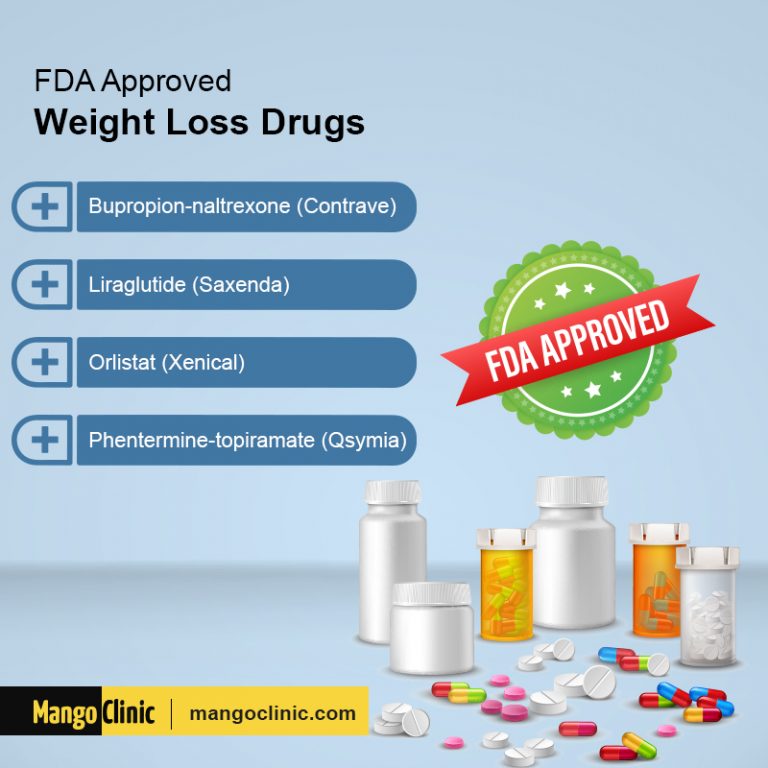The search for effective weight loss solutions continues, and as we step into 2024, numerous weight loss drugs have emerged promising significant results. This ultimate guide explores the best weight loss medications available today, focusing on their efficacy, safety, and potential side effects. With the rising rates of obesity worldwide, individuals are increasingly looking for effective weight loss options that complement their diet and exercise routines.
Pharmaceutical advancements have led to the development of various prescription medications that cater to different needs, including appetite suppressants and metabolic enhancers. In this guide, we will delve into the most recommended drugs approved by health authorities, providing insights into how they work and what users can expect.
Furthermore, we will discuss vital considerations such as potential interactions with other medications and the importance of working closely with a healthcare provider. As the landscape of weight management evolves, knowing which weight loss drugs are both safe and effective can empower individuals to make informed choices. Join us as we uncover the top weight loss drugs for 2024 and help you pave your path towards a healthier lifestyle.

weight loss drugs
Top Prescription Weight Loss Medications for 2024
As the demand for effective weight management solutions continues to rise, prescription weight loss medications are becoming increasingly popular in 2024. These medications offer a valuable option for individuals struggling to achieve their weight loss goals through diet and exercise alone. Understanding the various options available, along with their mechanisms, benefits, and potential side effects, is essential for making informed decisions.
One of the leading medications in 2024 is semaglutide, which works by mimicking the incretin hormone. This reduces appetite and increases feelings of fullness after meals. Studies have shown that patients using semaglutide can achieve significant weight loss, making it a favorite among healthcare providers.
Another notable option is phentermine-topiramate, a combination medication that suppresses appetite and enhances energy expenditure. Patients taking this medication often notice a marked reduction in hunger, leading to effective weight management. However, it may come with side effects such as dry mouth and insomnia.
Naltrexone-bupropion is another combination drug that affects the brain’s reward systems, helping to curb cravings. This medication is particularly beneficial for individuals with emotional eating tendencies. It’s vital to be aware of possible side effects, such as nausea and dizziness, when considering this option.
Moreover, liraglutide is another injectable medication, originally used for diabetes management, now gaining traction as a weight loss aid. It helps regulate appetite and has been shown to result in substantial weight loss for obese patients.
As always, it is crucial for patients to consult with their healthcare providers to determine the safest and most effective prescription weight loss medication tailored to their specific health profiles and weight loss goals in 2024.

weight loss drugs
Over-the-Counter Weight Loss Products: Are They Worth It?
Over-the-counter (OTC) weight loss products have gained popularity as alternatives to prescription medications, but understanding their effectiveness requires a closer look at their ingredients and scientific backing. Many OTC options claim to aid in weight loss, yet the effectiveness of natural weight loss supplements varies significantly.
One of the most common ingredients found in OTC weight loss products is caffeine, known for its ability to boost metabolism and enhance fat burning. However, while caffeine-based weight loss pills can lead to modest weight reductions, their effects are often short-lived and may not be sustainable for long-term weight management.
Another frequently used component is glucomannan, a natural fiber derived from the konjac root. It can promote feelings of fullness and reduces calorie intake; however, its effectiveness can be influenced by diet and lifestyle choices. Additionally, prescription vs OTC weight loss medications often comes down to the presence of more potent ingredients in prescription options such as phentermine or orlistat, which have scientific evidence supporting their efficacy.
Some products also contain herbal ingredients like green tea extract and Garcinia Cambogia, both marketed for reducing appetite and increasing fat oxidation. Although some studies suggest potential benefits, the evidence remains inconclusive and varies across individual responses.
Ultimately, while over-the-counter weight loss medications offer convenience, their safety and effectiveness may not match those of prescription alternatives. Potential side effects and the lack of rigorous regulation further complicate the decision-making process for consumers. When considering any weight loss strategy, it is vital to conduct thorough research and consult with healthcare professionals for personalized advice.

weight loss drugs
Natural Supplements for Weight Loss: Alternatives to Pharmaceuticals
Natural weight loss supplements have gained popularity as alternatives to pharmaceutical options, appealing to those looking for holistic approaches to weight management. Common supplements include ingredients such as green tea extract, which is known for its potential to boost metabolism and fat oxidation. Garcinia cambogia is another popular choice, credited with appetite suppression and inhibiting fat production.
Ingredients like conjugated linoleic acid (CLA) have been shown to reduce body fat while preserving lean muscle mass, making it a valuable addition to a weight loss regimen. For those looking for a natural appetite suppressant, glucomannan, a dietary fiber sourced from the konjac plant, can help you feel fuller, potentially leading to reduced caloric intake.
While these natural supplements can provide benefits, it’s essential to consider the potential risks. Some individuals may experience side effects such as digestive issues or allergic reactions. Additionally, relying solely on supplements without making lifestyle changes may yield limited success in achieving sustainable weight loss.
Integrating natural supplements into a comprehensive weight management plan should include a balanced diet and regular exercise. It is crucial to consult with a healthcare professional before starting any new supplement regimen, especially for those with underlying health conditions or who are pregnant or breastfeeding.
Overall, natural supplements for weight loss can enhance your efforts but are most effective when part of a broader weight reduction strategy. By understanding their potential benefits and risks, individuals can make well-informed choices in their pursuit of healthy weight loss.

weight loss drugs
Comparing the Efficacy of Different Weight Loss Drugs: What the Research Says
In recent years, the landscape of weight loss medications has expanded significantly, with various drugs emerging to help individuals manage their body weight. Studies have shown that different weight loss drugs work effectively based on individual body types and metabolic responses. For instance, orlistat and phentermine-topiramate have demonstrated notable success rates in clinical trials, particularly among patients with obesity and those struggling with related health issues such as hypertension and diabetes.
Research indicates that GLP-1 receptor agonists, such as semaglutide, offer substantial benefits beyond weight loss, aiding in blood sugar control for individuals with type 2 diabetes. Clinical studies show that participants using these medications often report an average weight reduction of over 15%, alongside improved metabolic markers. Another approach utilizes naltrexone-bupropion, which targets the brain’s reward system to curb food cravings, proving beneficial for emotional eaters.
Additionally, the effectiveness of these weight loss treatments can vary based on factors such as age, sex, and the presence of comorbidities. For instance, women may respond differently to weight management medications due to hormonal fluctuations affecting metabolism. Beyond pharmacological interventions, some studies suggest lifestyle changes alongside drug use significantly enhance results, providing a comprehensive approach to weight loss success.
As new drugs enter the market, ongoing research will be essential in determining the long-term safety and efficacy of these alternatives. The insights gained from these studies will help identify the most suitable weight loss solutions tailored to individual needs, offering hope for those struggling with obesity and weight-related challenges.

weight loss drugs
Considerations for Choosing Weight Loss Drugs: Safety and Regulations
When exploring options for weight loss medications, understanding their safety profiles and regulatory guidelines is essential. The effectiveness of weight loss drugs can vary significantly depending on individual health conditions and potential side effects, making it crucial to consult healthcare professionals before starting any medication. A thorough assessment of the safety data associated with these drugs is fundamental to minimize risks.
Regulatory bodies, such as the FDA, play a critical role in the approval and monitoring of weight loss medications. Medications must undergo rigorous testing to ensure they meet safety and effectiveness standards. Patients should look for drugs that have been recently evaluated, as new data can provide insights into long-term safety and efficacy. Understanding drug interactions is another vital consideration, as many weight loss medications may interact with other prescriptions or supplements, potentially leading to adverse effects.
Potential side effects can range from mild to severe. For instance, some medications may cause gastrointestinal issues, increased heart rate, or changes in mood. Therefore, it is crucial to report any unusual symptoms to a healthcare provider promptly. A personalized approach is recommended, where medications are tailored to an individual’s specific health profile and weight loss goals.
Additionally, the availability of prescription and over-the-counter options provides flexibility for patients, but the choice should always be guided by medical advice. Factors such as cost, accessibility, and long-term sustainability of the weight loss plan must also be considered. Informed decisions, based on a well-rounded understanding of weight loss drugs, empower individuals to pursue healthier lifestyles while effectively managing their weight.
Expert Opinions: Insights from Health Professionals on Weight Loss Drugs
In today’s society, weight loss drugs are often seen as a quick solution for shedding pounds. However, health professionals urge caution and emphasize the importance of a comprehensive approach to health. Dietitians and doctors highlight that while these medications can assist in weight management, they are most effective when combined with lifestyle changes.
According to experts, individuals considering prescription weight loss medications should first consult with their healthcare provider to assess their overall health and determine the most suitable option. The importance of tailored advice cannot be overstated, as what works for one person may not be appropriate for another.
Table 1 below outlines common types of weight loss drugs and their brief functions:
| Type of Drug | Function |
|---|---|
| Appetite Suppressants | Help to decrease hunger and control cravings. |
| Fat Absorption Inhibitors | Limit the amount of fat absorbed from food. |
| Metabolism Boosters | Increase the metabolic rate to promote fat burning. |
Health professionals also emphasize the role of diet and exercise alongside medication. Incorporating nutritional guidance and physical activity into daily routines is critical for long-term success. Behavioral therapy may also provide support in developing healthier habits and maintaining motivation throughout the weight loss journey.
Furthermore, researchers point out that the psychological aspect of weight loss is often overlooked. Support groups and counseling can play a significant role in addressing emotional eating and building a sustainable roadmap for health.
Future Trends in Weight Loss Medications: What to Expect in the Coming Years
The landscape of weight loss medications is evolving rapidly, with numerous innovative therapies and emerging drugs poised to transform the industry by 2025. As the demand for effective and safe weight management solutions increases, pharmaceutical companies are focusing on the development of targeted treatments that address various metabolic pathways and hormonal regulations involved in obesity.
One significant trend is the rise of GLP-1 receptor agonists, which have shown promise in not only controlling blood sugar levels but also promoting weight loss. These medications are anticipated to become more prevalent as further clinical trials validate their efficacy and safety for long-term use. Another area garnering attention is the use of combination therapies that leverage multiple mechanisms to enhance weight loss results.
In addition to traditional pharmacological approaches, digital therapeutics are expected to play a vital role in weight management. These include mobile applications and online platforms that incorporate behavioral therapy, helping individuals make sustainable lifestyle changes alongside their medication regimen. This multimodal approach can lead to improved outcomes and long-lasting effects.
Advancements in biotechnology are also paving the way for personalized weight loss medications. With ongoing research into genetics and individual responses to drugs, future therapies may be tailored to specific patient profiles, maximizing efficacy while minimizing side effects. This individualized approach promises to revolutionize how practitioners address obesity.
Moreover, the regulatory landscape is evolving, with healthcare authorities increasingly prioritizing fast-tracking the approval of safe and effective weight loss drugs. This shift suggests that consumers will have access to a broader array of options in the near future, fostering competition and innovation within the weight loss medication market.
